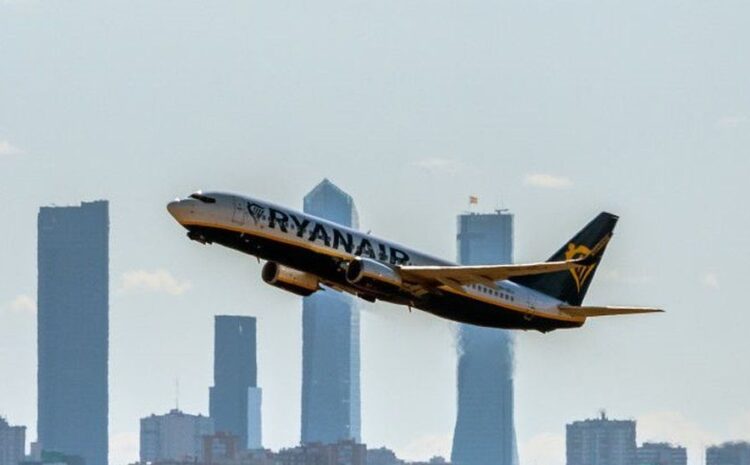
IMAGE SOURCE, GETTY IMAGES Image caption, Critics of the Ryanair quiz point out that South Africa has 10 other official languages, apart from Afrikaans
The country has 11 official languages, and many say they cannot understand Afrikaans – a language which was imposed during white-minority rule.
The quiz contains questions on South African general knowledge.
Ryanair defended the test, saying it weeds out those travelling on fraudulent South African passports.
“If they are unable to complete this questionnaire, they will be refused travel and issued with a full refund,” the airline continued.
When Dinesh Joseph protested, Ryanair staff told him: “This is your language,” he said.
“I was seething, I felt really triggered… there was a sense of anxiety and anger inside of me,” Mr Joseph told the BBC’s Newshour programme.
“It’s callous and insensitive to force people to write a test which would evoke so much emotion around it – the language of apartheid was Afrikaans,” Mr Joseph continued, saying he felt “oppressed” and insisting that speaking Afrikaans has nothing to do with how South African someone is.
There is also anger online.
One person online described Ryanair’s policy as “bigoted rubbish”.
Only around 13% of South Africans speak Afrikaans as a first language, according to a 2011 census – making it the country’s third-most spoken mother tongue, after Zulu and IsiXhosa.
The BBC asked Ryanair why they required the test to be taken in Afrikaans rather than any other South African language, however they did not answer.
The test is not required by UK border authorities.
The quiz, which one report says is riddled with grammatical and spelling errors, contains questions such as what is South Africa’s international dialling code, what is its capital city and who is the current president of the country.
Conrad Steenkamp, the head of South Africa’s Afrikaans Language Board, described it as “absurd” and said it had hindered attempts to improve the image of the Afrikaans language.

‘I would have failed this test’
Analysis by Nomsa Maseko, BBC News, Johannesburg
South Africa’s black majority views Afrikaans as an unfriendly language of the oppressor – or even a language of white racists – as it was forced down their throats at local schools. Black South Africans revolted against this.
The 16 June 1976 Soweto Uprising is one of a number of violent protests in which thousands of black children from South African township schools took to the streets to protest against the introduction of Afrikaans as a language of instruction.
The last time I spoke or wrote anything in that language was in high school.
It was a second language in former white schools and as students we had to get good Afrikaans marks to progress to the next grade.
As a result of this I swore to never speak Afrikaans again after I left high school and went to university. I blocked the language out of my mind.
So this questionnaire brought back memories of my schooling days. I would have failed this test and only got five questions right.

A South African foreign affairs spokesperson did not want to get involved in the row.
“It’s a Home Affairs matter. Also, it was done by a private airline not the UK government. Our understanding is that that airline has since stopped the practice,” Clayson Monyela told the BBC.
However, in an email to the BBC on Monday morning, Ryanair made no mention of ceasing the test.

Why Afrikaans is so controversial:
- During apartheid, or white-minority rule, Afrikaans was made mandatory, and an official language of education, alongside English, prompting nationwide protests by black South Africans
- It is no longer obligatory but is an option in schools
- It is the mother tongue of only 13% of South Africans, mainly mixed-race people, known as coloureds, and white South Africans – the descendants of Dutch, German and French settlers who arrived in the 17th Century
- More will be able to understand it but many cannot, and speak one of the 11 other official languages
- English is the language most commonly used officially and in business, according to South Africa’s 2011 census

Some reports say it applies to all Ryanair’s European flights, others say it applies to those just on UK and Ireland routes.
In a statement to South Africa’s Daily Maverick paper, Irish border authorities denied they require such tests.
South Africa has 11 official languages: Zulu, isiXhosa, Afrikaans, Sepedi, Setswana, English, Sesotho, Xitsonga, Siswati, Tshivenda and Ndebele.
Many black South Africans are reluctant to use Afrikaans. The elite university, Stellenbosch, came under fire in 2015 for using Afrikaans in lectures, with some students saying they struggled in classes because of it.
In 2021, the university announced its recommitment to a multilingual language policy, including Afrikaans, English and isiXhosa.
